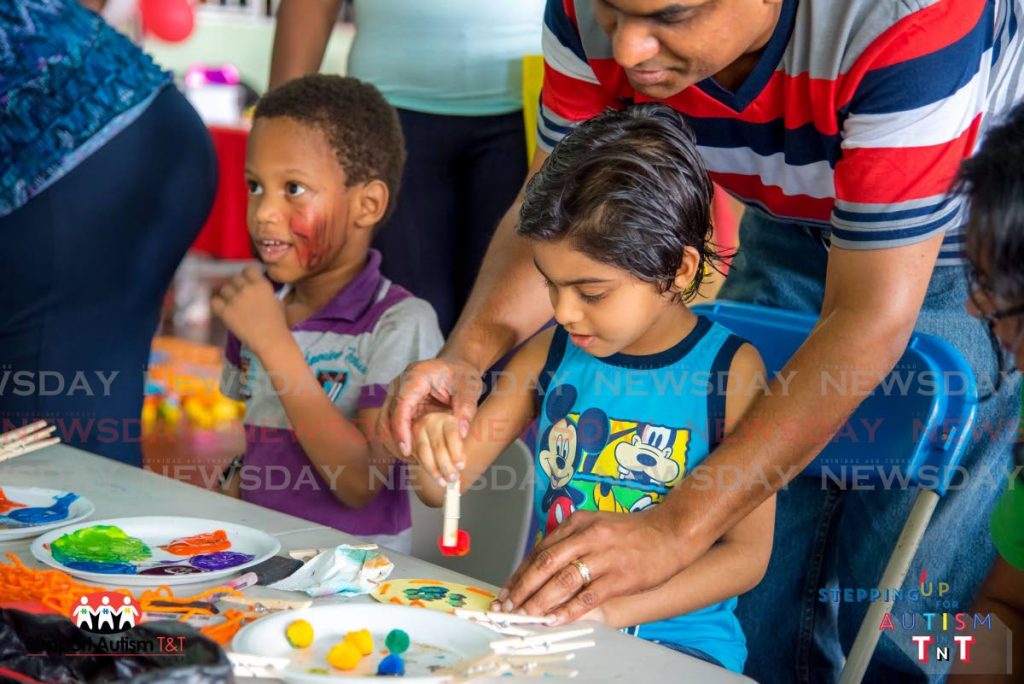Autism hope

DR RADICA MAHASE
Hello, my name is Keron. I am the proud father of a beautiful, intelligent girl named Cristina. She’s 12 years old, she loves to make puzzles, she’s really good at painting and she loves the beach.
She was diagnosed with autism when she was four. She is low-functioning and someone has to stay with her all the time.
I am usually that someone. Her mother left when Cristina was five. She said she didn’t sign up for that, that she is still young and she needs to enjoy her life.
I can’t blame her for thinking like that. Not everyone is blessed with the strength to be a parent of a child with special needs.
My daughter and I are a team. I work from home so I am with her all the time. There are times when I attend meetings and then I have my cousin stay with her, but that’s never more than two or three hours. Every day I take care of her. I bathe and change her, I cook her food and feed her; she’s my child and I embrace the responsibility of taking care of her.
Sometimes it’s very difficult. She’s has very sensitive hearing and noises trigger massive meltdowns. It’s very difficult to get her to wear new clothes or to adapt to any change in routine. She’s at the developmental age of two years old, so she’s not very independent. She’s not potty trained; she cannot really take care of herself, although I have been teaching her to do more things for herself – simple things like eating without my help.
The challenges of raising a child with special needs in TT are real. It can make you depressed, sad and angry –all at the same time. I look at my child and I want to give her the world, but I feel so limited. In the early years when her mother left I went into a depression. For six months my mother had to step in and care for my daughter because I was too busy feeling sorry for myself and too angry with the world. I really don’t know how I snapped out of that phase.
But once I accepted that this was my reality and that this child was my life, everything fell into place. Instead of being angry that she was having a rough day, I started finding ways to make the days better. I can tell when a meltdown is about to happen and I know what to do to either prevent it or to comfort her until it is over.

I can’t get her into a school so I started teaching her at home.
We do very simple things every day; we build puzzles together, I read to her and let her follow the words with her fingers. Sometimes she will focus for only ten minutes; other times we might go for a full hour. I read her mood and I tailor the activities according to that. It mightn’t seem much for 12 years old, but I never give up hope that one day she will speak full sentences or she will be the one reading to me. I feel happy when she says a new word or when she does something on her own. I celebrate all those little things with her and I let her know that she did something really big!
Some people might say that I miss out on a lot of things in life. I don’t go out and lime and somewhere along the way I lost all my friends because I never had time for them. But I am okay with all that. When I become overwhelmed I go for a run in the savannah nearby or I pack up my car and my daughter and I head to the beach.
Parenting a child with special needs takes a different level of mental strength. I am exhausted most of the time. But my love for my daughter is my motivation. I just have to look at her and I find the strength to go on.
I want other special needs parents never to give up hoping for better days and better things for your child. Accept your child as he or she is; love him/her unconditionally; celebrate every little accomplishment and keep fighting and hoping. Never ever give up hope, because being hopeful gives you the strength you will need to go on the roughest days!
Dr Radica Mahase is founder/director, Support Autism T&T


Comments
"Autism hope"